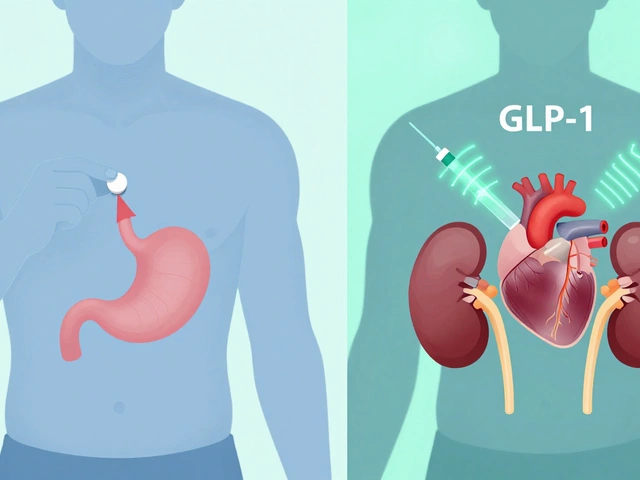Warning Signs You Should Never Ignore
We all hear the phrase “trust your gut,” but when it comes to health, your body sends clear alerts. Spotting a warning sign early can mean the difference between a quick fix and a serious problem. Below we break down the most common red flags you’ll see across medicines, surgeries, and everyday ailments.
Medicine‑Related Alerts
Some drugs hide nasty side effects that pop up only after a few weeks. If you notice any of these after starting a new prescription, pause and call your doctor:
- Unexplained rash or itching – could signal an allergic reaction.
- Sudden dizziness or palpitations – often a sign the dose is too high.
- Persistent stomach pain or nausea – a cue that the stomach lining is irritated.
- Yellowing of skin or eyes – a red flag for liver trouble.
- Bleeding gums or easy bruising – might mean the drug affects blood clotting.
These signs don’t always mean you must stop the medication, but they do mean you need professional advice fast.
Post‑Surgery Warning Signs
Recovering from an operation is tough, and a few warning signs can signal infection or complications. Keep an eye out for:
- Fever over 100.4°F (38°C) – a classic sign of infection.
- Increasing redness, swelling, or foul‑smelling discharge at the incision – could mean the wound is infected.
- Severe pain that doesn’t improve with prescribed meds – might indicate deeper issues.
- Sudden shortness of breath or chest pain after heart or lung surgery – treat as an emergency.
- Unusual numbness or weakness in a limb – may point to nerve damage.
If any of these appear, contact your surgeon or head to the nearest ER. Prompt action can save you from a longer hospital stay.
Beyond meds and surgery, there are everyday warning signs that hint at larger health problems. A persistent cough, unexplained weight loss, or a change in bowel habits shouldn't be brushed off. These could be early clues for conditions like cancer, diabetes, or liver disease. The key is consistency: if a symptom lasts more than a couple of weeks or worsens, get checked.
Why does spotting these signs matter? Because early detection usually means simpler, cheaper treatment. In toxicology, catching a drug‑related reaction before it damages an organ can prevent permanent harm. In orthopedics, noticing infection early after joint replacement can avoid a second surgery.
So what can you do right now?
- Keep a symptom diary – note when something starts, its intensity, and any triggers.
- Read the medication leaflet – it lists the most common side effects for a reason.
- Set reminders for follow‑up appointments; doctors often schedule labs to catch hidden issues.
- Don’t self‑diagnose based on a quick internet search; use it as a conversation starter with your healthcare provider.
Remember, your body is constantly sending messages. When you listen, you protect yourself from hidden dangers and keep your health on track.

Red Flags After Total Knee Replacement: What You Shouldn't Ignore
Worried about your recovery after a total knee replacement? This article breaks down the real warning signs you need to watch out for. You'll learn what’s normal and what can signal a bigger problem. From swelling and pain to fever and odd noises, get straightforward info and practical advice to help you spot and handle red flags fast. Don't let small issues turn into big setbacks—know what to do and when to call the doctor.

Which Country Has the Unhealthiest Diet?
Apr, 15 2025



